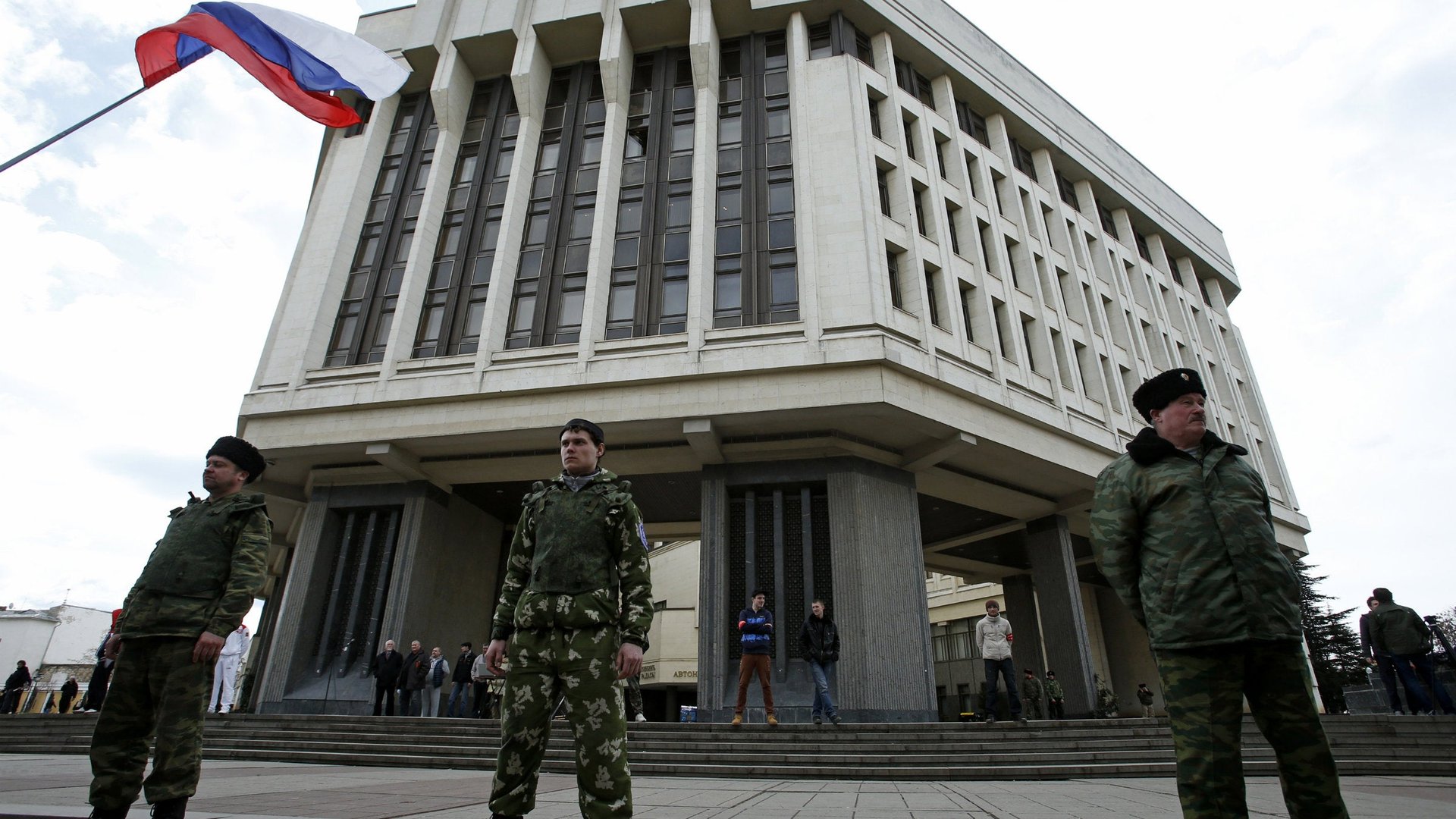Putin did say he wanted to annex Crimea—the West just wasn’t listening
The Ukraine crisis escalated again today as the Crimean parliament decided to stage a referendum to annex the peninsula to Russia, and to hold the vote in just 10 days—two weeks earlier than planned. The decision reveals Russian president Vladimir Putin yet again a step ahead of the West in his Ukrainian strategy, and is likely to trigger an intensified round of Western discussions on how to respond to Russia’s week-old invasion of Ukraine.


The Ukraine crisis escalated again today as the Crimean parliament decided to stage a referendum to annex the peninsula to Russia, and to hold the vote in just 10 days—two weeks earlier than planned. The decision reveals Russian president Vladimir Putin yet again a step ahead of the West in his Ukrainian strategy, and is likely to trigger an intensified round of Western discussions on how to respond to Russia’s week-old invasion of Ukraine.
The decision to hold the vote March 16 forces a new look at remarks Putin made just two days ago. In a news conference, he said that Russia would not “instigate” any annexation of the peninsula. That seemed to suggest that he was satisfied with Crimea possessing greater autonomy, but under Kiev’s rule. But what Putin actually said was that the decision is up to the Crimeans. “We will never instigate. We will never support such trends. Only people who live in a certain territory have the right to decide their own future,” he said.
So that, while the West was focusing on the “instigate” part of his remarks, Putin was actually emphasizing the free-will section.
As validation of his position, Putin cited Western support of Kosovo’s 2008 declaration of independence from Serbia. He used the same rationale for Russia’s post-Kosovo invasion of Georgia, which lost two swaths of its territory in the war—Abkhazia and South Ossetia. The historical difference is that Kosovo, like the rest of the former Yugoslavia, declared independence after years of a murderous Serbian march through its neighboring states, which afterward also decided to secede. In the current case, Russia has invaded Crimea and itself put in motion the succession referendum.
The new Crimean decision rattled the European Union. Swedish foreign minister Carl Bildt tweeted afterward, “Crimea vote today in occupied parliament obviously escalates the crisis. EU appeal on Monday for de-escalation steps wasn’t heard.” Even before the vote, Charles Tannock, a UK politician and member of the European Union, called the Russian actions “Putin’s Kampf.” The EU has been split on how to respond. Will the latest development finally shock the West into unity?